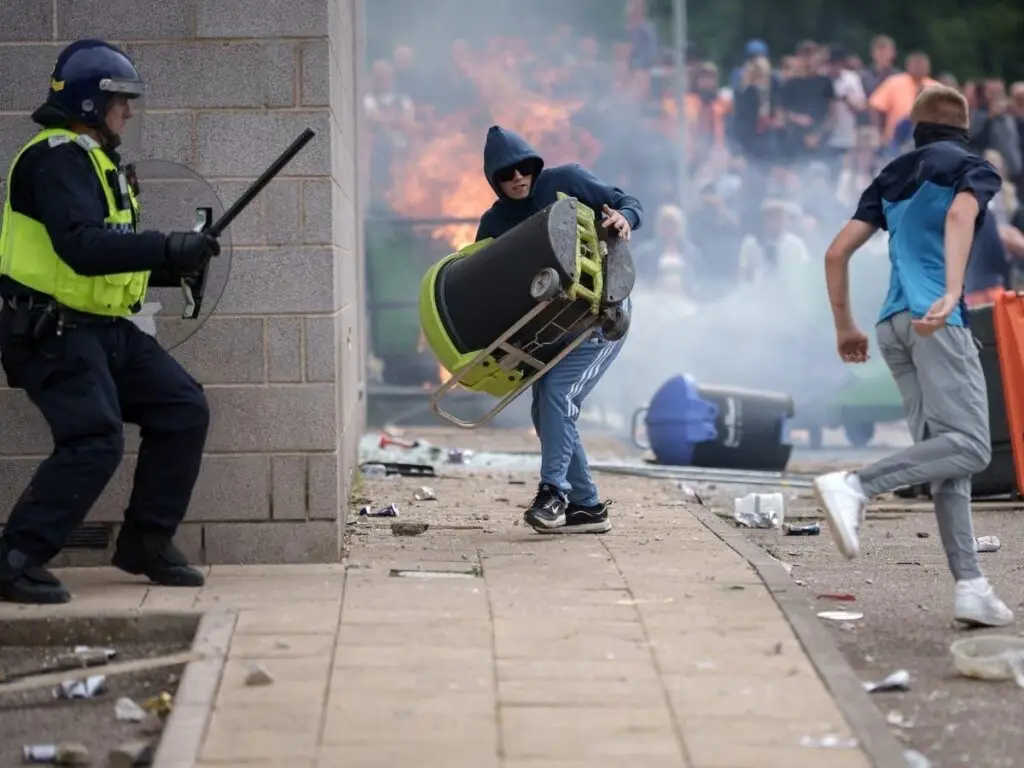Over the past months, the public has been told that financial resources are exhausted. Yet, when faced with riots, the government’s swift response was remarkable.
Despite proclaiming the dire state of public finances, the rapid mobilisation of the justice system during the recent riots showcased a stark contrast.
A Nation in Crisis
The recent riots have highlighted deep societal issues within the country. Streets were filled with violent confrontations, migrant hotels targeted, and widespread looting occurred. Deprivation centres have become hotspots for unrest.
Upon his return, one might find the nation in chaos with a beleaguered police force, extensive property damage, and a justice system seemingly working miracles.
Swift Justice
In a surprising turn of events, the UK’s justice system eliminated court backlogs almost overnight. Previously, prison overcrowding was a pressing issue, but the immediate response to the riots saw around 1,000 rioters arrested and processed rapidly.
Many of those arrested received jail sentences, while others were given community service orders requiring official supervision.
Government Action
The government’s response has been commendable in quelling the unrest. An extraordinary level of activity was evident as courts, police, and other official bodies coordinated efforts.
A ‘standing army’ of officers was created, trained specifically for public order. Police briefings and courtrooms were made transparent to the public.
Cameras were allowed to capture the arrests and the judges’ remarks during sentencing, sending a message of zero tolerance for disorder.
The Lingering Costs
While the rapid action was effective, the underlying problems persist. The justice system remains burdened by a backlog of non-riot cases, and prison overcrowding is far from resolved.
Maintaining the enhanced police presence and additional court proceedings incurs significant costs. The increase in police numbers and court officials working overtime only adds to the financial strain.
Historical Context
Comparisons have been drawn to the 2011 riots, where over 1,300 individuals were arrested. This year’s incidents have surpassed those numbers, with more severe offences involved.
The 2011 riots were sparked by the police shooting of a drug dealer, leading to widespread looting and chaos. This year’s violence was notably more intense, with harsher sentences expected.
Future Implications
There’s no denying that the public will ultimately bear the financial burden. Businesses affected by the riots will claim insurance, and the government’s autumn statement may pave the way for tax increases to cover the costs.
The Chancellor might cite the need for additional funding due to these unexpected expenses, possibly holding previous administrations accountable for the strained justice system.
A Warning for the Future
The riots serve as a stark reminder for Prime Minister Starmer and his team. While they have demonstrated their ability to act decisively, the underlying societal issues remain.
Future crises, whether in transport, education, or healthcare, could emerge quickly and will require prompt, effective action.
In conclusion, while the swift governmental response to the riots was necessary and effective, the enduring societal issues demand comprehensive, long-term solutions.
The costs, both financial and social, will be felt for years. The government must continue addressing these deeper problems to prevent future unrest.

